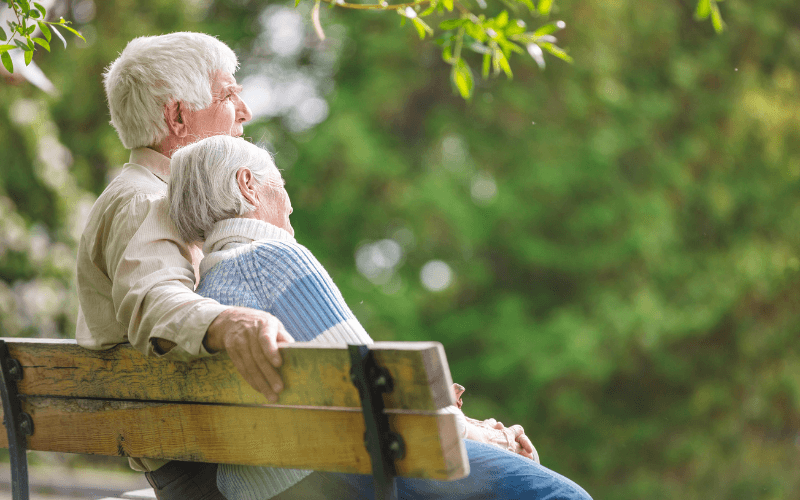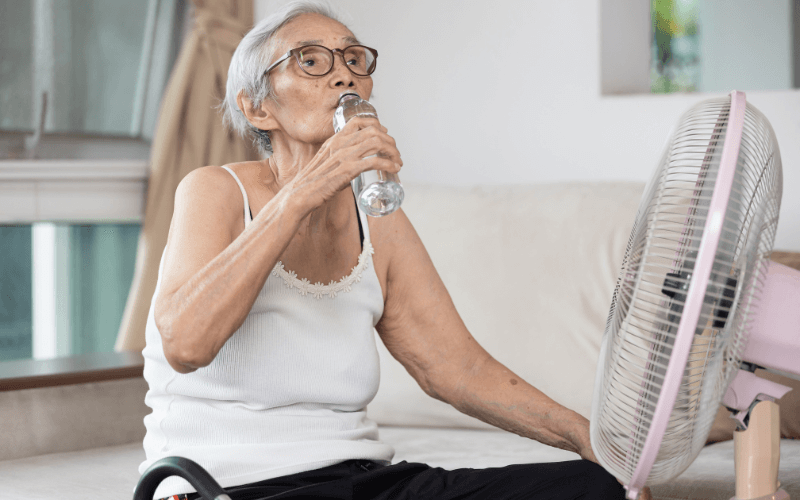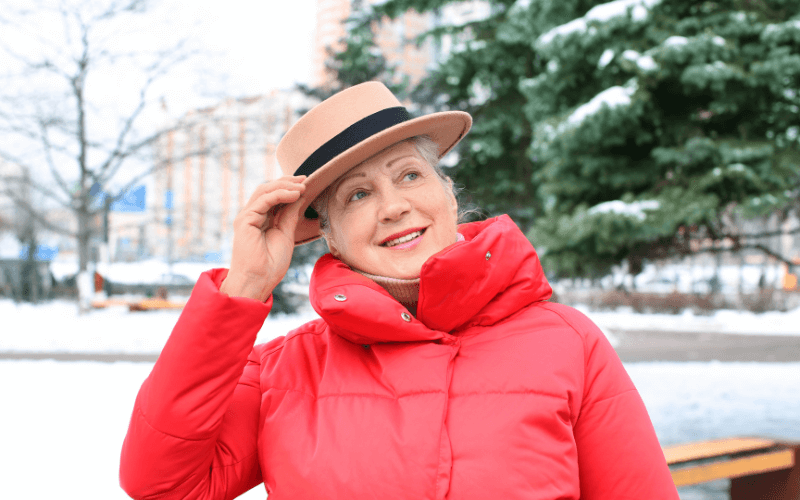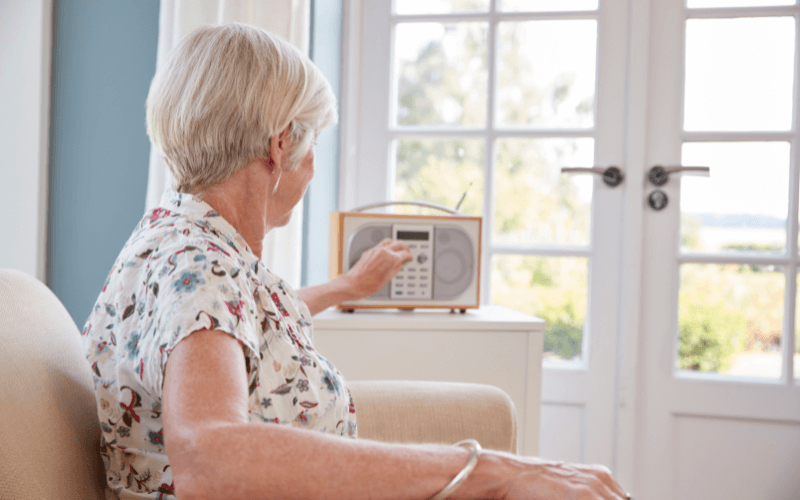Seasonal Safety Tips: Protecting Seniors During Extreme Weather Events
Living independently through Australia and New Zealand's diverse seasons is entirely achievable with the right preparation and support. While weather conditions can present challenges, simple planning strategies empower older Australians to stay safe, comfortable, and confident in their own homes year-round.
In this blog:
With Australia and New Zealand's evolving weather patterns, staying prepared helps older adults continue living independently with confidence and security. This blog explores practical seasonal safety tips to protect seniors during extreme weather, focusing on strategies for staying safe during heatwaves, cold conditions, severe storms, and environmental disasters.
Why Are Seniors More Vulnerable to Extreme Weather?
As people age, their bodies undergo physiological changes that reduce their ability to adapt to temperature fluctuations. Many older adults may not feel thirsty until they are already dehydrated, due to age-related changes in the body's thirst response. Chronic illnesses like heart disease, diabetes, and respiratory conditions further elevate these risks, especially when combined with medications that affect hydration or temperature regulation.
Research from the Australian Red Cross and Council on the Ageing Queensland reveals that only 25% of older Queenslanders are aware of heat-related health risks. This is concerning given that heatwaves cause more fatalities in Australia than most other natural disasters.
Summer Safety: Coping with Heatwaves and Bushfires
Australia’s high-risk weather, marked by soaring temperatures, droughts, and bushfire threats, makes heatwaves among the most dangerous natural hazards. These often cause more deaths than floods or storms, yet they tend to be underestimated. Many older adults may not feel thirsty until they are already dehydrated, due to age-related changes in the body’s thirst response. Additionally, their bodies have a reduced ability to regulate temperature, making heat stress a serious concern.
Here are safety tips for seniors during the summer heatwaves and bushfires:
Stay Hydrated:
Drink small amounts of water regularly, even if not thirsty.
Avoid alcohol, caffeine, and sugary drinks as they can dehydrate the body.
Eat water-rich foods like cucumbers, oranges, and watermelon.
Keep Cool Indoors:
Stay in cool or air-conditioned spaces where possible.
Close blinds and curtains to block out direct sunlight.
Use damp cloths, cold showers, or cool foot baths to lower body temperature.
Dress Appropriately:
Wear light, loose-fitting, and breathable fabrics.
Opt for light-coloured clothing to reflect heat.
Recognise Heat Stress Symptoms:
Watch for symptoms of heat-related illnesses: dizziness, rapid heartbeat, headaches, confusion, nausea, and dry skin.
Seek medical help immediately if these signs appear.
Bushfire Preparedness:
Create a Bushfire Survival Plan: Know when and where to evacuate. Have clear routes mapped out.
Emergency Kit: Include essentials like medications, water, non-perishable food, a battery-powered radio, and important documents.
Property Safety: Keep gutters clear, remove flammable debris, and have firefighting tools ready if in a bushfire-prone area.
Related Reading: How to Prevent Heat-Related Illnesses: Summer Safety Tips for Seniors
Winter Safety: Protecting Against Cold Spells
Even though Australian winters are milder than those in many other countries, sudden cold snaps can be dangerous for seniors. Cold weather increases the likelihood of hypothermia, respiratory issues, and slips or falls, particularly for seniors with existing health or mobility concerns.
Follow these cold-weather safety tips:
Dress in Layers:
Wear multiple layers of lightweight but warm clothing.
Don’t forget hats, scarves, and thermal socks to retain body heat.
Keep Homes Warm:
Use heaters safely, ensuring proper ventilation to prevent carbon monoxide poisoning.
Seal windows and doors to prevent drafts.
Place blankets and throws within easy reach.
Stay Active Indoors:
Gentle exercises like stretching or light indoor activities help maintain circulation.
Moving regularly reduces the risk of stiffness and cold-related health issues.
Prevent Falls:
Wear non-slip shoes and ensure pathways are clear of hazards.
Install handrails in high-risk areas, such as bathrooms and stairways.
Flu Vaccination:
The flu can be severe for older adults. Ensure annual flu vaccines are up to date, and consider pneumococcal vaccines for added protection.
Related Reading: Stay Safe in the Cold: 12 Winter Safety Tips for Seniors
Storm and Flood Preparedness: Staying Safe in Severe Weather
Storm season in Australia and New Zealand can bring heavy rain, powerful winds, and flash floods, posing significant risks—especially for seniors with limited mobility or health concerns.
Storm Safety Tips:
Prepare an Emergency Kit:
Include essentials such as water, non-perishable food, medications, flashlights, batteries, a first aid kit, and important documents.
Keep emergency contact numbers handy.
Stay Informed:
Monitor weather updates via radio, TV, or reliable mobile apps.
Sign up for emergency alerts through local government websites.
Secure Your Home:
Have overhanging branches trimmed, secure loose outdoor items, and check the stability of roofs and gutters.
Ensure windows and doors are weatherproof.
Plan for Evacuation:
Know the safest evacuation routes and local emergency shelters.
Make arrangements for pets and mobility aids if needed.
Avoid Dangerous Areas:
Never attempt to walk or drive through floodwaters—even shallow water can be deceptive and life-threatening.
Seasonal Health Checklist for Seniors
Extreme weather events in Australia and New Zealand have become increasingly unpredictable. And the best way to face these is to be prepared for whatever weather event all year round. Here’s a handy year-round safety checklist to keep seniors prepared:
Summer:
Stay hydrated and cool.
Have a bushfire action plan.
Limit outdoor activities during peak heat.
Winter:
Dress warmly in layers.
Ensure heaters are safe and serviced regularly.
Get vaccinated against the flu.
Storm Season:
Prepare emergency kits.
Secure property and check weather updates.
Know evacuation routes and local emergency contacts.
Year-Round:
Stay Connected with Technology: Use personal alarms like the Tunstall Gem4 and mobile apps to ensure seniors can quickly contact family or emergency services.
Regular Health Check-ups: Schedule routine doctor visits to manage chronic conditions and adjust medications for seasonal changes.
Keep Emergency Contacts Accessible: Ensure a list of emergency numbers is placed somewhere visible, like on the fridge or next to the phone.
Personal Alarms For Extreme Weather Events
With climate variability and shifting weather patterns, extreme weather events are becoming more frequent in parts of Australia. For seniors, these events pose heightened risks that require proactive planning and awareness. Whether facing a heatwave, cold snap, flood, or storm, preparedness is key to ensuring safety and well-being. Families, carers, and communities are essential in supporting older Australians, helping them stay informed, connected, and ready for any seasonal challenge.
Given the unpredictable nature of extreme weather events, personal alarms like Tunstall's Gem4 provide a reliable way for seniors to access emergency help when it matters most. Whether facing a heatwave, cold snap, storm, or flood, the IP67 water-resistant and GPS-enabled Gem4 lets seniors call for help with a single button press.
With fall detection and 24/7 monitoring, caregivers and families can rest easy knowing their loved ones have immediate access to assistance when needed most.
Stay prepared for any season—explore Tunstall personal alarms today.
Keep Reading: 4 Protective Reasons to Carry a Personal Alarm for Safety





